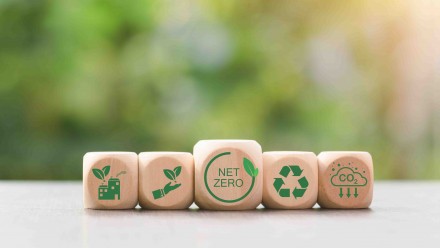Climate Essentials for PMC Graduate Program
Climate change is already affecting communities throughout Australia, with 2016 and 2020 tied as the hottest years on record at 1.2°C above pre-industrial times. Australia has experienced changes in extreme weather, with more frequent and intense heatwaves, storms, flooding and bushfires.
In response, government departments, private organisations and community groups are planning, developing and implementing strategies to address current and projected changes to our climate and to harness opportunities. To support this important work, ICEDS has designed the Essentials short courses for professionals - Climate Essentials, Energy Change Essentials, and Disaster Solutions. Together, the courses provide an overview of the latest developments around climate change-related adaptation and mitigation, including the science of climate change, energy change and disaster solutions, as well as different policy responses across a range of sectors.
The Essentials courses are delivered by the ICEDS Executive Education team and bring together leading climate, energy and disaster risk researchers from across The Australian National University and beyond, to share the latest research and learn with the professional course participants.
Scope
The Climate Essentials for PMC course is shaped by core modules from our three Essentials courses. By the end of the course, a fully engaged participant is expected to have (at a minimum) the skills and knowledge to:
- Understand (broadly/generally) the latest science relating to climate extremes, impacts, adaptation options, and energy transition opportunities in Australia and the region.
- Comprehend many of the social and economic issues that will need addressing when adapting to and mitigating climate change, including disasters.
- Understand some of the key technologies that will enable a transition to a zero-emissions energy system.
- Identify the main market, regulatory and policy frameworks that underpin climate change adaptation, mitigation and disaster preparedness and response.
- Identify real-world climate change, energy transition and disaster-related case studies.
- Understand the different climate change-related perspectives, priorities and work-related challenges of their colleagues in the classroom.
Program
- Introduction and welcome
- Understanding climate change and extremes - Professor Mark Howden, ANU Institute for Climate, Energy & Disaster Solutions.
- Energy transition trends, options and policy solutions - Professor Frank Jotzo, ANU Institute for Climate, Energy & Disaster Solutions.
- Disasters and the need for transformational change - Associate Professor Roslyn Prinsley, ANU Institute for Climate, Energy & Disaster Solutions.
- Frameworks for disaster policy and innovative financing for disaster solutions - Professor Paula Jarzabkowski, The University of Queensland, Business School.
- Innovation and industry policy for the energy transition - Dr Jorrit Gosens, Centre for Climate and Energy Policy, ANU Crawford School of Public Policy.
- Resilience: What it is, how to build it and whether its desirable - Dr Steven Lade, ANU Fenner School of Environment & Society.
Details
- The course is delivered in person.
- The course program includes six lecture topics and group discussions to enable direct interaction with lecturers and other course participants.
- A short break punctuates each session, and 45 minutes is allocated for lunch.
- Course timings are 8.45 am - 5.00 pm.
- The course will be held at the PMC training room, Barton ACT.








